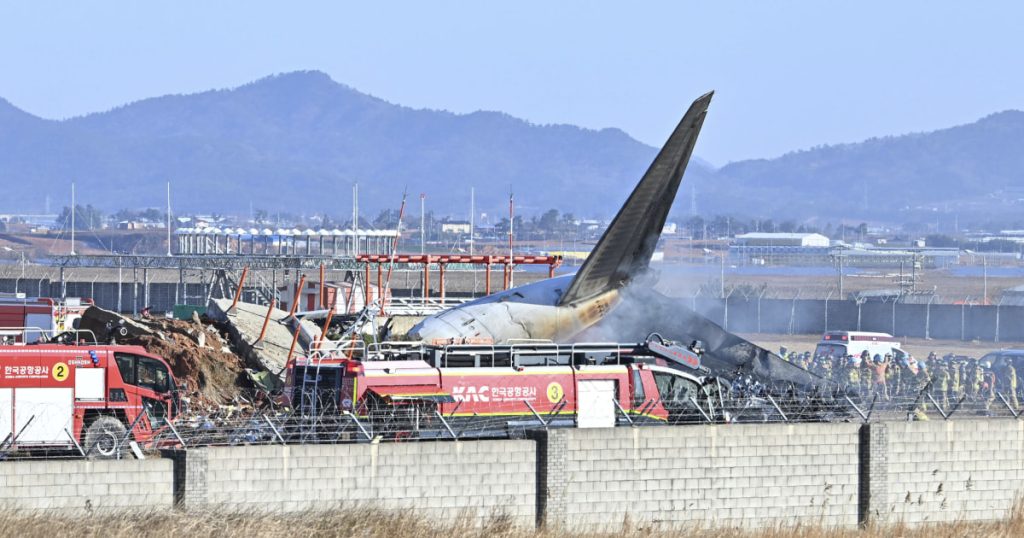A commercial airplane crashed at South Korea’s Muan International Airport, resulting in at least 47 fatalities. The plane, carrying 175 passengers and six crew members, veered off a runway during landing and caught fire. Only one passenger and one crew member were rescued. The Jeju Air flight originated from Bangkok, and the crash was reported between 9:03 a.m. and 9:13 a.m. local time. Firefighters were able to extinguish the initial blaze by 9:46 a.m. local time, with 80 firefighters and 32 fire trucks responding to the scene.
The country’s national defense ministry has activated an emergency response team, deploying military personnel and equipment to assist at the crash site. South Korea’s acting president, Choi Sang-mok, along with other officials, have urged for immediate mobilization efforts to extinguish the fire and rescue any remaining individuals. The Ministry of Interior and Safety issued a statement emphasizing the need for full support in addressing the aftermath of the accident. The presidential office convened an emergency meeting to address the airplane crash and coordinate response efforts.
As the situation continues to develop, updates on the crash at Muan International Airport are anticipated. NBC News freelance producer Stella Kim, based in Seoul, is monitoring the evolving story. With details still emerging, it is crucial to stay informed about any new developments or information related to the tragic incident. The crash has prompted a significant emergency response, highlighting the importance of swift action and coordination in addressing such disasters.
The tragic event at Muan International Airport serves as a sobering reminder of the risks involved in air travel and the potential consequences of accidents. The loss of life in the crash underscores the need for stringent safety measures and ongoing vigilance in the aviation industry. As investigators work to determine the cause of the accident, there will likely be a focus on enhancing safety protocols and preventing similar incidents in the future. The impact of the crash is likely to resonate throughout South Korea and the global aviation community.
Efforts to contain the aftermath of the crash and provide support to those affected are underway, with emergency response teams working diligently at the scene. The collaborative response from various agencies and officials demonstrates the importance of unified efforts in crisis situations. As the investigation progresses and more details emerge, the focus will be on addressing the immediate needs of the survivors and their families, as well as implementing measures to prevent such tragedies from reoccurring in the future. The incident has brought together resources and expertise to respond comprehensively to the challenges presented by the crash.
The tragic plane crash at Muan International Airport has left a significant impact, with the loss of lives prompting a state of mourning and reflection. The response from government authorities, emergency services, and the broader community underscores the resilience and capacity for cooperation in times of crisis. As South Korea grapples with the aftermath of the accident, there will be a collective effort to address the implications and lessons learned from the tragedy. The investigation into the cause of the crash will be crucial in improving safety standards and ensuring the wellbeing of passengers and crew in future air travel.












